June 18, 2025 | 00:29 GMT +7
June 18, 2025 | 00:29 GMT +7
Hotline: 0913.378.918
June 18, 2025 | 00:29 GMT +7
Hotline: 0913.378.918
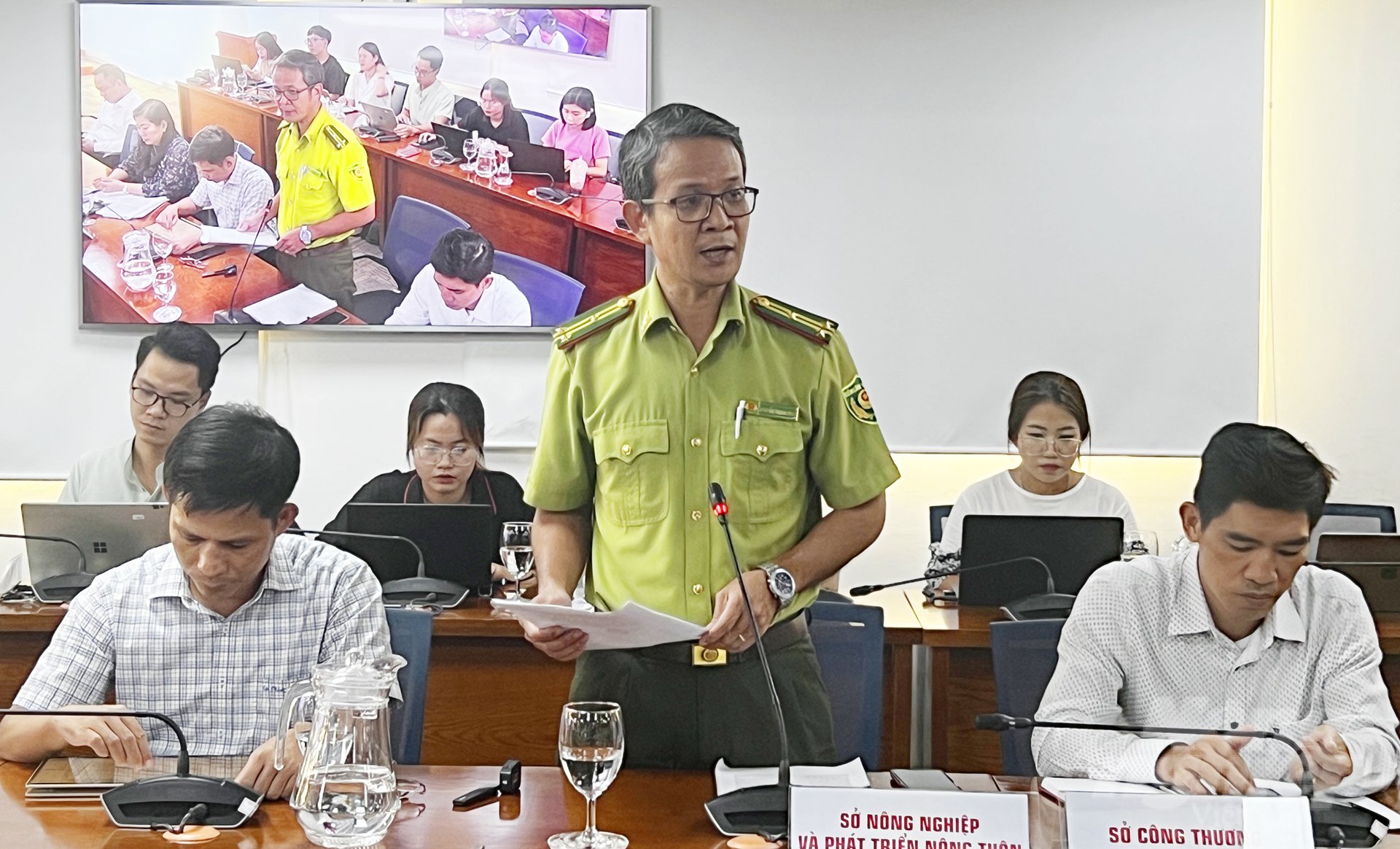
Mr. Nguyen Trung Truc, Deputy Director of the HCMC Forest Protection Department (HCMC’s Department of Agriculture and Rural Development) informing at the press conference on the afternoon of August 10. Photo: Nguyen Thuy.
Regarding the handling of reports from the public about wild animals, shared during the regular press conference on August 10th, Mr. Nguyen Trung Truc, Deputy Head of the Ho Chi Minh City Forest Protection Department (Department of Agriculture and Rural Development of Ho Chi Minh City), stated that in 2022, the Department received 113 reports related to wild animals from the Education for Nature – Vietnam (ENV) center. Through the inspection and processing of these 113 reports, they could confirm 62 accurate pieces of information (54.9% accuracy rate), leading to the reception, care, and rescue of 349 wild animal individuals.
Additionally, based on direct information from local residents, the Ho Chi Minh City Forest Protection Department received 203 wild animal individuals for care and rescue, according to regulations.
Addressing challenges in processing information related to wild animals, Mr. Nguyen Trung Truc mentioned three difficulties: due to the high population density, dense traffic, and extensive area, it takes a significant amount of time to access and process information, sometimes leading to inaccurate checks; some reports have incorrect addresses, outdated sources, or repetitive content.
Furthermore, there are individuals engaging in the sale of wild animals at various gathering points and traffic routes, using cunning tactics, and sometimes resisting and escaping when confronted by authorities, endangering road safety.
According to Mr. Nguyen Trung Truc, within the city area, many years ago, people used to keep wild animals as pets or for ornamental purposes, not for commercial reasons. Through the implementation of the program "Management and Development of crocodiles and wild animals in the city area," the majority of residents have raised awareness about protecting wild animals, leading to the transfer of responsibility to the Ho Chi Minh City Forest Protection Department for rescue and release in accordance with the law. However, a portion of the population still releases animals in temples or into residential areas.
"In reality, there is still the issue of people selling wild animals on certain traffic routes", Mr. Truc stated, adding that for many years, the Ho Chi Minh City Forest Protection Department has collaborated with local authorities to carry out propaganda, work with religious establishments to encourage and receive wild animals, and rescue and release them into the natural environment at conservation areas and national parks in neighboring provinces (Dong Nai, Binh Phuoc, Long An, etc.) At the same time, they cooperate with relevant agencies to crack down on trading points along various routes.
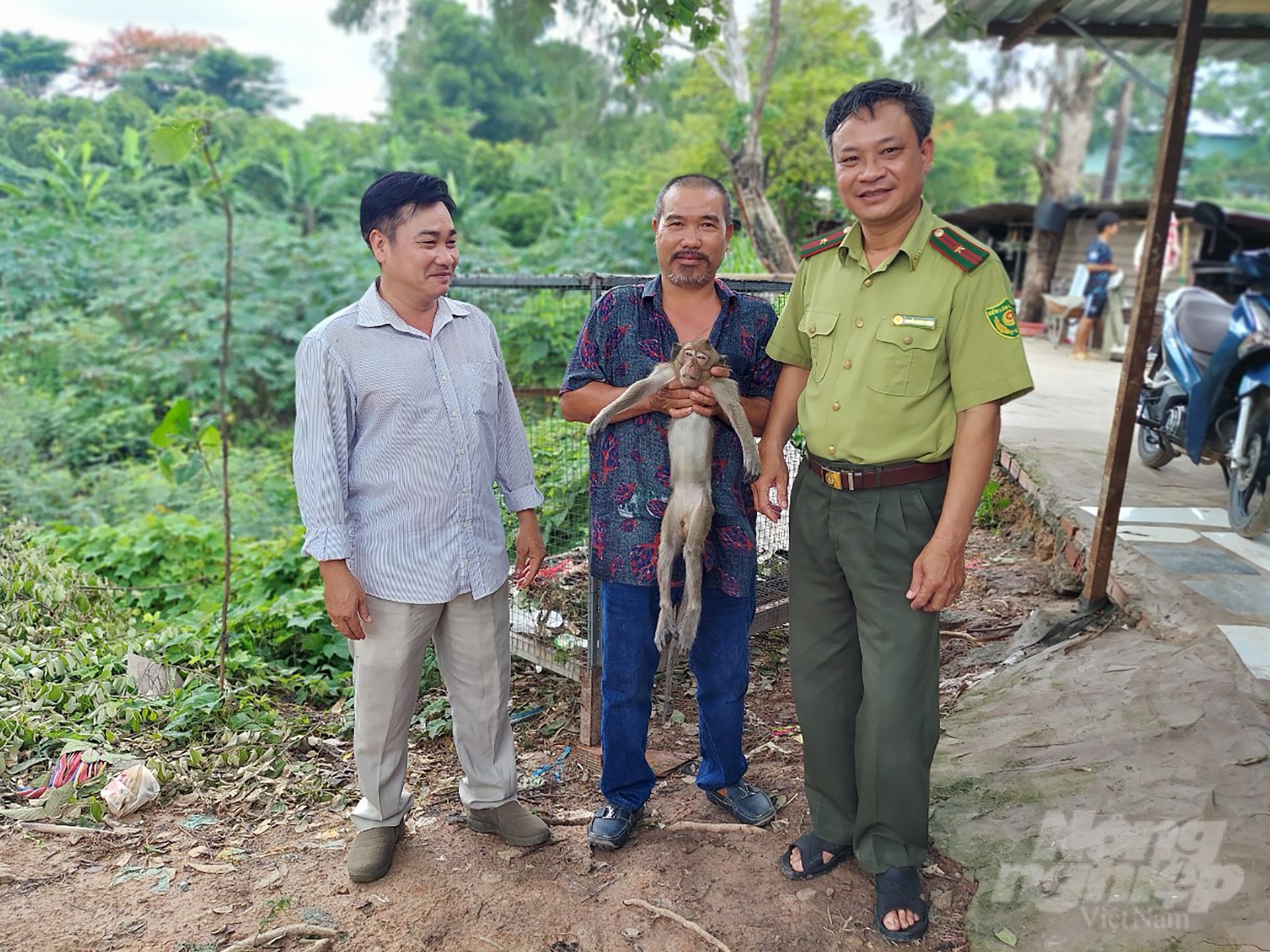
The HCMC Rangers rescued a monkey from the news of the people and released it to Cu Chi Wildlife Rescue Station. Photo: HCMC Forest Protection Department.
In order to effectively address the situation mentioned above, Nguyen Trung Truc, Deputy Director of the Ho Chi Minh City Forest Protection Department, emphasized the need for proactive coordination, ranging from awareness-raising to rigorous enforcement, among various relevant agencies and local authorities.
To enhance the handling of information related to wild animal cases from citizen reports within the Ho Chi Minh City area, Mr. Truc stated that the Ho Chi Minh City People's Committee issued Document No. 464 on February 9, 2021. This document directed the Department of Agriculture and Rural Development of Ho Chi Minh City to instruct the Forest Protection Department to intensify awareness campaigns, raising the public's understanding of refraining from purchasing, selling, breeding, confining, transporting, or consuming products derived from wild animals.
Additionally, collaboration among different regulatory authorities was emphasized to strengthen inspection, monitoring, and close supervision over activities involving the breeding of wild animals. Breeding and exporting wild animals must ensure legal origins. Timely detection and stringent prosecution of violations according to the provisions of the law, as well as establishing a database on breeding facilities for commercial purposes of wild species listed as endangered, precious, and rare forest animals in the Appendix I and II of CITES, were highlighted.
Furthermore, there will be an increased focus on inspecting and controlling restaurants and eateries that advertise products and dishes made from wild animals. Strict measures will be taken to investigate and address individuals involved in the buying and selling of wild animals along various roadways.
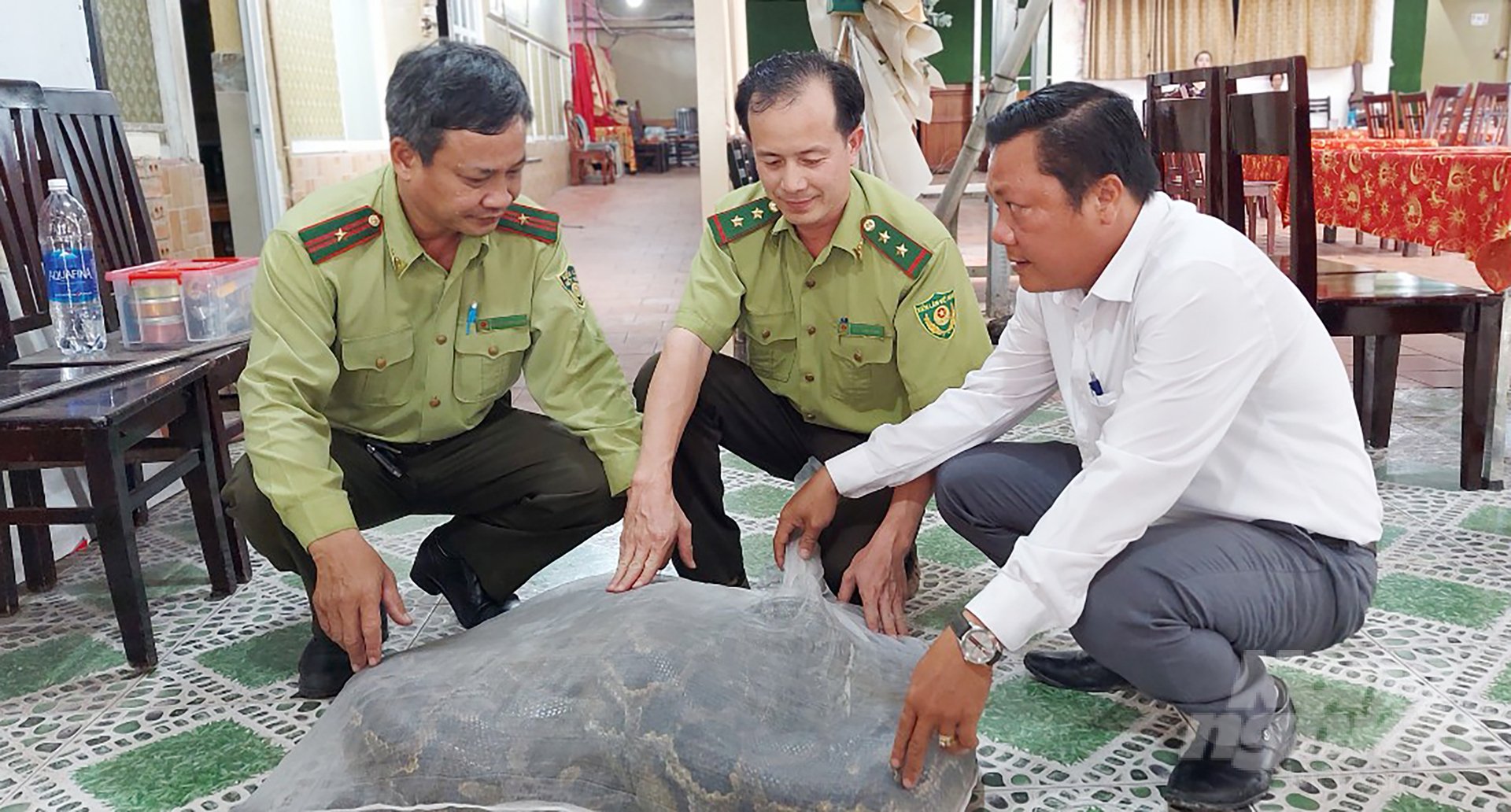
The Ho HCMC Forest Protection Department seized a 42kg earth python. Photo: HCMC Forest Protection Department.
Assigning the City Police to direct the district and district-level police to coordinate with relevant forces to strengthen preventive measures, combat, deter, and promptly handle violations related to wild animals. This includes focusing on dismantling organized transnational criminal networks engaged in illegal buying, storing, and trafficking of wild animal species.
Coordinating with functional agencies to rigorously inspect and address unlawful advertising and trading of wild animals on electronic information platforms and unauthorized trading of wild animals along roadways within the Ho Chi Minh City area.
Directing the Border Guard Force to actively collaborate with functional forces in enhancing patrols and strict control over coastal border areas, port gateways, and the maritime border areas adjoining the city with neighboring provinces. They should timely detect, apprehend, and process, as per legal provisions, organizations and individuals engaging in hunting, purchasing, selling, transporting, exporting, importing, or dealing with wild animals illegally.
The Department of Industry and Trade, in coordination with the district and commune-level People's Committees, will direct the management board of markets to actively inspect and inform relevant authorities about businesses dealing with wild animal species, especially endangered, precious, and rare species, and derivatives sourced from wild animals. They will also intensify awareness campaigns to discourage street vendors from trading in wild animal species.
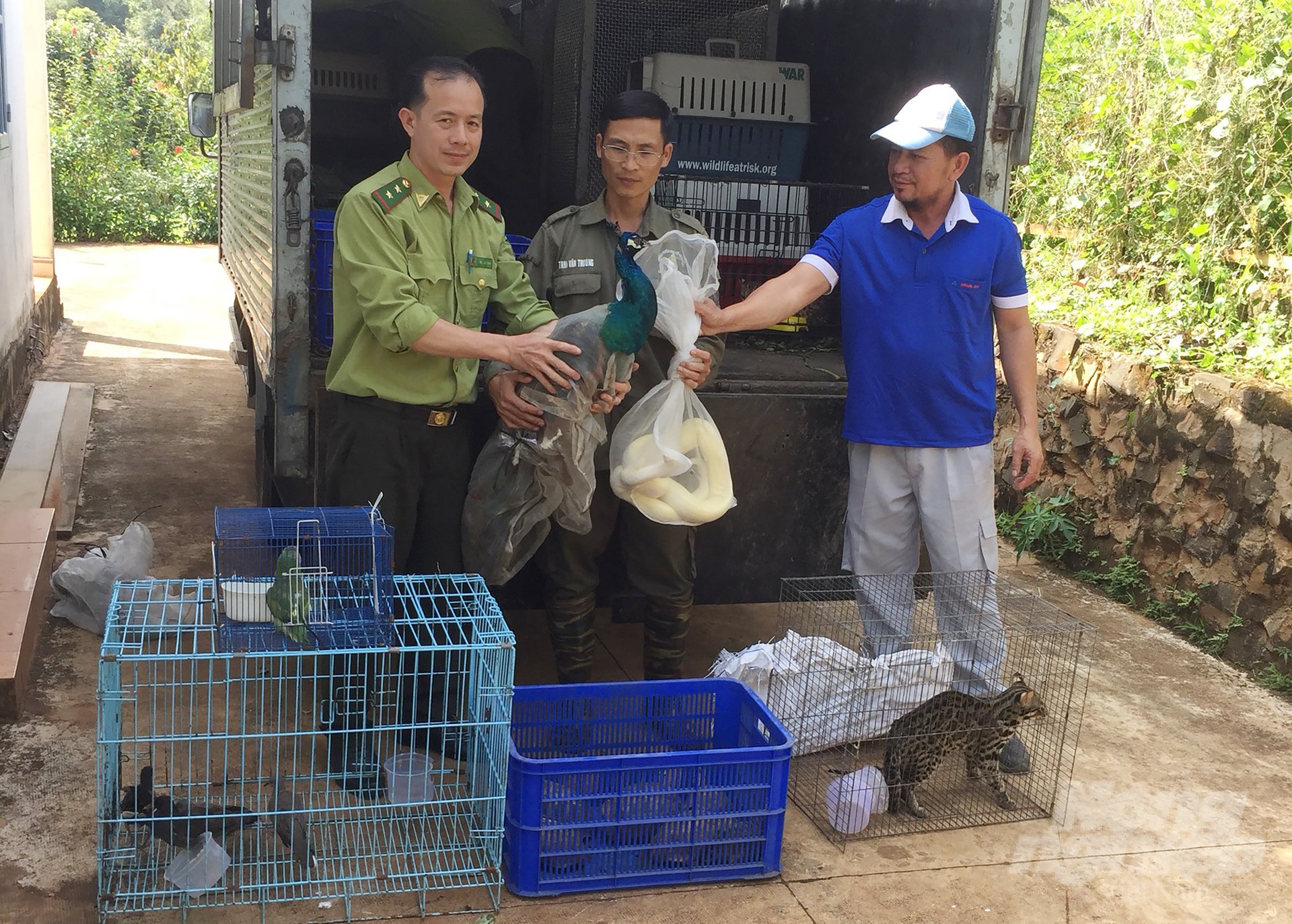
On August 1, HCMC Forest Protection Department coordinated with Dong Nai Nature and Culture Conservation Area to release 60 rare and precious individuals into the forest. Photo: HCMC Forest Protection Department.
The city Market Management Department is enhancing market inspections and control, preventing and promptly addressing acts of trading, transporting, and conducting business related to wild animals, especially endangered, precious, and rare species, as well as derivatives sourced from wild animals, in accordance with assigned functions, tasks, and authorities.
Chairpersons of the People's Committees of districts and communes are directing functional agencies and the Chairpersons of the People's Committees of wards along with the townships to coordinate with relevant organizations to strengthen patrols, control, and rigorously handle unauthorized trading and possession of wild animal species, particularly addressing the sale of wild animals along roadways. Resolute actions should be taken to completely eradicate illegal trading of wild animals within the managed area.
Translated by Nguyen Hai Long
![Turning wind and rain into action: [7] Early disaster warnings help marine farmers minimize losses](https://t.ex-cdn.com/nongnghiepmoitruong.vn/608w/files/news/2025/06/17/z6704423696987_15fd32ffc26d590d204d520c9dac6786-nongnghiep-142942.jpg)
(VAN) In recent years, thanks to early disaster warnings and forecasting, marine farmers in Khanh Hoa province have been able to reduce risks and losses, thereby improving production efficiency.
![Turning wind and rain into action: [6] ‘Four on-the-spot’ disaster management software](https://t.ex-cdn.com/nongnghiepmoitruong.vn/608w/files/news/2025/06/17/e5a48259d6a262fc3bb3-nongnghiep-183800.jpg)
(VAN) By simply activating the scenario on the disaster management software, the relevant authorities immediately know how many households need to be evacuated, where to evacuate them to, and by what means of transportation…
![Turning wind and rain into action: [5] Hue applies modern technology in disaster forecasting](https://t.ex-cdn.com/nongnghiepmoitruong.vn/608w/files/news/2025/06/17/z6704423696987_15fd32ffc26d590d204d520c9dac6786-nongnghiep-093938.jpg)
(VAN) In Hue city, modern technology has recently been applied in meteorological and hydrological forecasting and warning, helping to reduce the damage caused by natural disasters.

(VAN) A cutting-edge farming technique being implemented on an experimental ranch in Arizona's Sonoran Desert has already saved a billion gallons of water over five years, according to Civil Eats.

(VAN) Poultry and pig production and the environment can be boosted through enhanced water technology, according to new research.
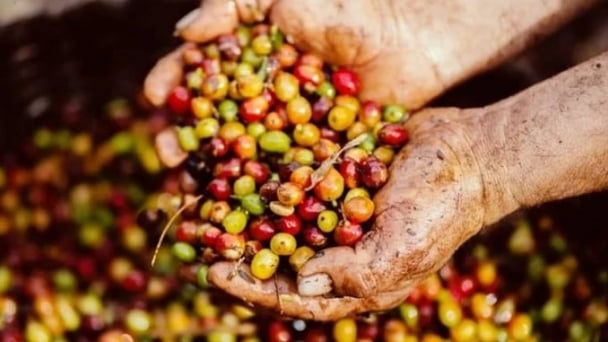
(VAN) Coffee prices on June 16, 2025 are unchanged. In Vietnam, local trading prices are holding steady, ranging around VND 112,000 – VND 112,500/kg.
![Turning wind and rain into action: [4] Bringing climate bulletins to remote and isolated areas](https://t.ex-cdn.com/nongnghiepmoitruong.vn/608w/files/linhnhp/2025/06/14/1152-z6704423696987_15fd32ffc26d590d204d520c9dac6786-nongnghiep-151141.jpg)
(VAN) The Vietnam Agriculture and Nature Newspaper interviewed Mr. Vu Thai Truong, Acting Head of Climate Change and Environment at UNDP Vietnam, to gain deeper insight into how climate bulletins are delivered to farmers.